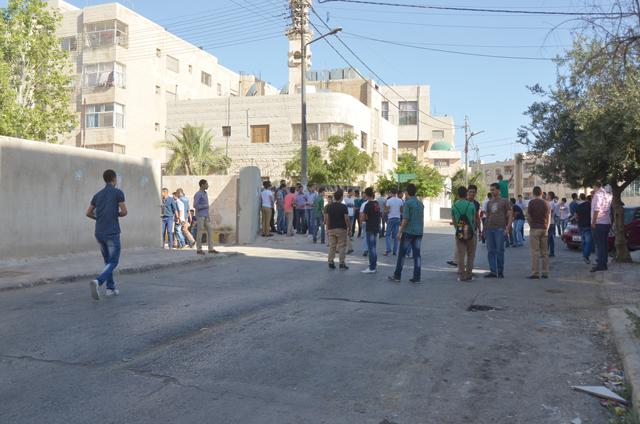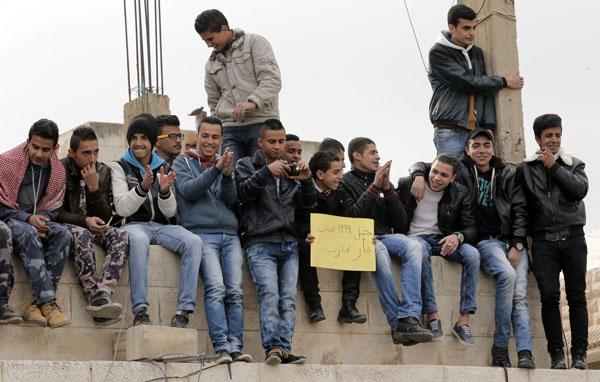You are here
Tawjihi students anxious as teachers strike continues
By Muath Freij - Aug 25,2014 - Last updated at Aug 25,2014

AMMAN – With Jordan Teachers Association (JTA) continuing its strike for the second day of the new academic season, students, especially those in their final school year who will be sitting for the General Secondary Certificate Examination, known as Tawjihi, expressed fears that the syndicate’s move would influence their performance.
Tawjihi students interviewed by The Jordan Times complained that the strike would have negative consequences on their studies this year as their peers in the private schools have already begun their classes.
The JTA demands include changes to the civil service by-laws regarding sick leaves, promotions and leaves without pay, investigating the Education Ministry’s pension fund and referring its case to the judiciary, implementing a “better medical insurance system”, increasing teachers’ salaries, awarding them more financial benefits and ensuring that they are given better contracts at private schools.
Abdul Rahman Araj, a 17-year-old student in east Amman, said Tawjihi students want to study and take advantage of each day because Tawjihi is the most important stage in a student’s life. The examination decides the future of students and is currently the main criteria by universities to admit students.
“I went to my school and only met a limited number of teachers who were chatting and watching TV, so we decided to go home,” he told The Jordan Times outside his school in the Nuzha neighbourhood.
Ahmad Abu Zohri, another student, said he is against the strike because it “killed their [students] eagerness to start the year with a strong momentum”.
Rami Horani said his friends studying Tawjihi at private schools started more than a month ago, taking advantage from the long summer holiday.
He voiced concern over the uncertainty of the strike, which might take a long time to end.
Unlike lower grades, which will be compensated for the missed classes during the winter holiday, extending the first semester for Tawjihi students, especially those who are expected to finish by the end of the term, is risky because they might miss university registration deadlines.
“We will miss a number of classes and at the end of the semester teachers will hastily try to finish the syllabus, which is not helpful at all,” he added.
Horani, however, sympathises with the teachers’ demand for a better salary, so do officials, who blame the economy for the government’s inability to respond to the financial demand.
Laith Mohammad, another Tawjihi student, said he understood the need to better teachers’ lives, but blamed educators for failing to “count their blessings”.
“Teachers have a lot of benefits including finishing their working day early and having long holidays,” he said.
“Neither teachers nor the Ministry of Education will lose anything; students will be the only losers because of the strike,” he lamented.
Majority of demands met
Ministry of Education Secretary General Mohammad Akour called on teachers to resume work for the sake of students.
Akour stressed that the ministry met all their demands except the financial one simply because it cannot afford it. He added that this demand would cost the ministry between JD220 and JD250 million annually.
Related Articles
The Jordan Teachers Association (JTA) continued their strike on Sunday at the beginning of this year's school season.
AMMAN — With the new amendments to the Jordan Teachers Association (JTA) Law currently being discussed, the teachers’ syndicate has presente
AMMAN — The General Secondary Certificate Examination (Tawjihi) will be held once every academic year starting in 2017, not 2016, according












